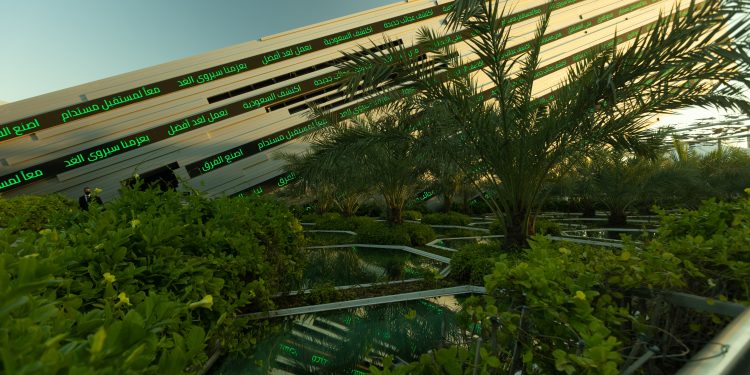Experts attending the UN Climate Change Conference in Dubai have shed light on the positive role played by the private sector in advancing sustainable development in Saudi Arabia. Panel discussions held at the Saudi Pavilion explored various topics including carbon removal, corporate sustainability, and domestic market mechanisms. The discussions went beyond carbon emission goals set by the Paris Agreement and delved into the objectives outlined in Saudi Arabia’s Vision 2030. The importance of private sector participation in environmental efforts was emphasized, with representatives from government organizations, companies, and international organizations providing insights into the current situation.
Hajar Al-Gosair, sustainability head at Saudi Arabia’s Ministry of Economy and Planning, highlighted the significance of the private sector in diversifying the economy and achieving the goals of Vision 2030. She mentioned the steering committee chaired by Saudi Minister of Economy and Planning Faisal Al-Ibrahim, which includes over 20 entities from both private and governmental bodies. Key players such as the Capital Market Authority, the Ministry of Energy, and the Ministry of Investment, as well as private sector members like Al-Marai and Desert Technologies, were recognized for their efforts in driving change.
During the panel discussions, officials from Al-Marai and Desert Technologies shared the actions taken by their respective companies to reduce carbon emissions. Saudi Aramco also announced the launch of a $1.5 billion venture capital fund to invest in technology that accelerates the net-zero initiative. Experts emphasized the importance of extending sustainable practices and green finance accessibility to small and medium enterprises (SMEs) to promote environmental responsibility across diverse business sectors. The growth of SMEs aligns with Saudi Arabia’s ambition to strengthen this sector in its economy.
When discussing sectors where green finance can be applied, Tony Cripps, CEO of the Saudi British Bank, expressed optimism for its impact on emerging technology and green transportation. He mentioned electric vehicles, battery storage, and the data storage industry as exciting sectors for green finance. In early 2024, Saudi Arabia plans to launch sustainable development reporting standards for companies, becoming the first G20 country to have a reporting standard aligned with international best practices.
Princess Nouf Al-Saud, CEO of the King Khalid Foundation, highlighted the need for a comprehensive approach to address climate change. She emphasized the importance of businesses taking responsibility for the communities they benefit from and called for contributions from governments, businesses, and philanthropy. Princess Nouf noted that by 2030, there will be 38 million green jobs, making it essential to integrate the youth and “re-skill” the workforce. She mentioned companies like NEOM and Red Sea Global as leaders in sustainability initiatives within Saudi Arabia.
Another session at the Saudi Pavilion focused on carbon capture, removal, and storage as a pathway to achieving net zero and mitigating global temperature rise. Steve Smith, the executive director of the Oxford Net Zero Initiative and CO2RE Research Hub, provided an overview of the sector’s current status and its potential in the Middle East, particularly in GCC nations. Smith highlighted the abundant renewable energy resources and geological formations in the region, which could support processes like direct capture and CO2 mineralization.


